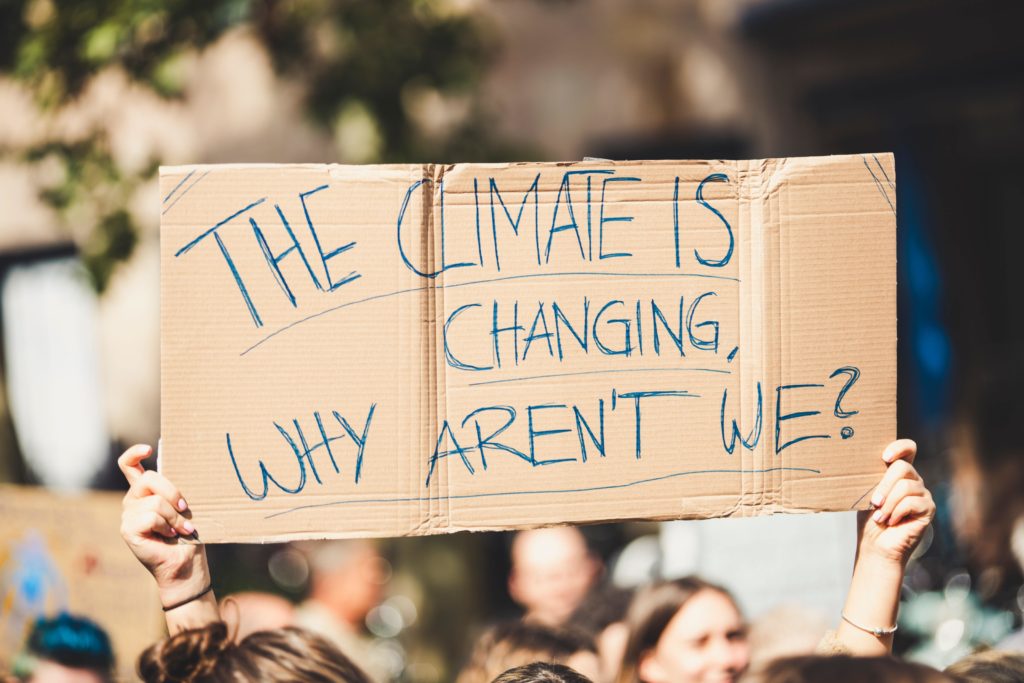This Earth Day was a unique one.
Not only were we marking 50 years of advocating for the environment, but we were also tasked with analyzing how we need to take action for the climate in our evolving world. At The GREEN Program, we gathered a group of global change-makers to discuss how we can all mobilize for the environment. In our 4-day Earth Week panel series, we uncovered how these change-makers were making strides for sustainability in organizations, such as NASA, NREL, Arup, Nike, ExxonMobil and more.
Throughout the week, the GREEN community asked ourselves…
How can we take action for the climate today?
Rooting for Global Food Security
Join us as we rethink how we grow, share, and consume our food, and discuss local and global food security with speakers from Florida Impact, the United States Patent & Trade Office, Grounded Upcycling, and Louisville Food Pantry
A Panel of Global Change-Makers

Shirbrina Jefferson
Public Policy Assistant at Florida Impact

David Brynes
Patent Examiner at the U.S. Patent and Trade Office

Parker Reposa
Founder & CEO at Grounded Upcycling

Samantha Hudson
Public Coordination Director at Cardinal Cupboard Food Pantry
The GREEN Team’s Key Takeaways
1) Social determinants of food insecurity vary in each community
Shirbrina works with Florida Impact and they have a healthy retail project which provides fresh produce and healthy food options in local stores. Every community that she works with has a different challenge, so the approach she and her organization take must differ as well. For example, one barrier may be a lack of transportation while another may be language differences.
2) Improper food labeling influences consumers
With an understanding of technological innovations in agriculture, David urges that society could benefit from a more objective assessment of what is or is not in our food. Non-GMO labeling on products that have no ability to be modified could instill fear in consumers and influences their perception in a way that could further food insecurity.
3) Urban agricultural systems and technologies are going to change our food system
Parker founded Grounded Upcycling and is expanding the catalog of which produce is being talked about in the urban agricultural sector. As people move into megacities, we have to think about what is going to feed our population. Traditionally, people associate urban agriculture with small hydroponic systems for leafy greens, but we need to integrate more caloric intensive foods from rural farming systems into urban ones.
Keep an eye out for innovative urban agricultural concepts such as vertical farming. Check out Aero Farms!
4) Universities should play a role in local food security
Samantha reaches out to local organizations and restaurants to host food drives for the local community. She also facilitates communication with the campus population about food accessibility through University of Lousiville’s Cardinal Cupboard Food Pantry.

How can you take action for the climate?
After learning from these global change-makers, you may be thinking, “So, what now? How do I get started?”. Here are a few ways you can get started (or continue) to mobilize for the environment:
“Go to your favorite restaurants and ask how they manage food waste.”
Shirbrina Jefferson
“Talk to your representatives about state energy or sustainability incentives that are important to you. “Ask honest questions about the food you are consuming.”
David Brynes
“Talk to farmers, learn how to grow food, and try to join an organization that is working on food security’s specific problems”
Parker Reposa
“Order from your favorite local restaurant and help local businesses.”
Samatha Hudson
More Mobilizing Change Panels
Engineering for the Environment
Panelists from Dubai Electricity & Water Authority,
NREL, NASA and Pfizer
Reinforcing Responsible Sourcing
Panelists from Nike, Fitbit, and Ground Upcycling
Consulting for Climate Change
Panelists from Independent Power Systems (IPS),
Arup, and a Graduate Student of Energy Systems
from UC – Davis
The Future of Energy
Panelists from Independent Power Systems (IPS),
National Renewable Energy Laboratory,
Momentum: Move Innovation Forward, and ExxonMobil
Boots on the Ground: Turning Passion into Action
with featured speaker, influencer, activist, and backpacking queen, Pattie Gonia
Explore how The GREEN Program is fostering a community of global change-makers, including the GREEN Alumni from the above panel, through our short-term education abroad programs! If you would like to get in touch with our team, please reach out here: info@thegreenprogram.com
